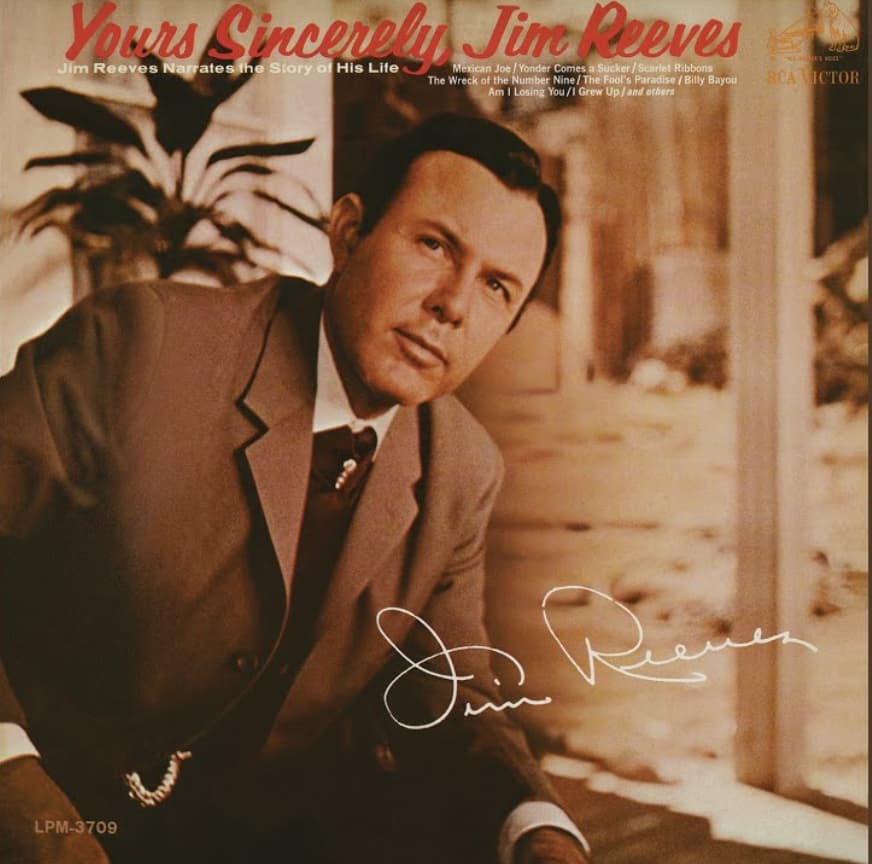
Jim Reeves – Billy Bayou (1958): The Whimsical Tale That Rode the Wave of Country’s Golden Era
Let’s take a trip back to the tail end of the 1950s, a moment when the world was changing fast, but music—especially the polished sound coming out of Nashville—still held onto a charming, narrative quality. This brings us to “Billy Bayou,” a delightful and slightly humorous single released by Jim Reeves in 1958. This song is a wonderful window into an earlier, less serious facet of “Gentleman Jim” that sometimes gets overshadowed by his deep, velvet-smooth ballads of heartbreak and faith.
A Chart-Topping Piece of Nashville History
For those of us who followed the country charts in those golden years, “Billy Bayou” was a distinct pleasure. It wasn’t just a popular tune; it was a major, defining hit of the time. The single rapidly ascended the charts, securing its place at Number 1 on the US Country Chart where it reigned for an impressive five weeks. It spent a total of 25 weeks on the country chart, demonstrating its widespread and lasting appeal across America.
Interestingly, this upbeat, quasi-novelty tune also showed signs of the cross-over appeal that would soon make Reeves a global icon. While his biggest pop crossover was yet to come with “He’ll Have to Go,” “Billy Bayou” also nudged its way onto the broader U.S. Pop Chart, peaking modestly but showing the first subtle blending of the country sound with mainstream American tastes.
The Story Behind the Swing: Roger Miller’s Pen
One of the fascinating details about “Billy Bayou” is its pedigree: it was written by a pre-stardom Roger Miller, the future musical genius known for his witty, playful lyrics and unique style. The collaboration between the young, quirky songwriter Miller and the sophisticated crooner Reeves—guided by the innovative hand of producer Chet Atkins—resulted in a record that felt both traditional and fresh.
The song tells the tall-tale history of its title character, Billy Bayou, a red-headed, freckled Louisiana lad born in the 1800s. It chronicles his larger-than-life—and often comically ill-advised—adventures through a series of short, humorous vignettes. We hear that Billy fought in the infamous Battle of the Little Big Horn and nearly met his end by bragging to Geronimo. These little stories paint Billy as a lovable rogue, a fearless, slightly reckless soul whose biggest weakness wasn’t a hostile chief, but a “pretty girl.”
The Meaning: A Lighthearted Cautionary Tale
The core of the song lies in its catchy, recurring chorus, which serves as a constant, gentle warning from the narrator:
“Billy-Billy Bayou, watch where you go, You’re walking on quicksand, walk slow. Billy-Billy Bayou, watch what you say, A pretty girl will get you one of these days.”
The song is a lighthearted commentary on the dangers of impetuousness—whether it’s fighting historical battles or talking back to a chief—and the ultimate, charming inevitability of falling in love. The final verse delivers the punchline that only a pretty girl, walking right through his front gate, could finally tame the adventurer. He couldn’t decide whether to stand his ground or flee and, naturally, “He wound up married, ’cause he did neither one.”
For those of us who remember the era, “Billy Bayou” is more than a novelty; it’s a wonderful example of how Jim Reeves could take a simple, narrative song and elevate it with his warm, expressive voice. It offers a nostalgic, comforting view of a bygone era in country music—before the polished Nashville Sound fully took over—when storytelling was king and a sly wink was just as important as a sincere sigh. It’s a delightful reminder that even a “Gentleman” like Reeves could appreciate a good laugh and a playful caution.
I hope this trip back to 1958 brought back some fond memories of those early country days. Would you like to hear the story behind another Jim Reeves hit, perhaps one of his signature crooning ballads?